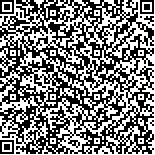| Quote
: |
张敏,张敏依,孙莉,王聪,范海青.TIP睡眠调控技术联合耳穴磁疗对乳腺癌患者围手术期睡眠质量的影响[J].湖南中医药大学学报英文版,2024,44(4):669-674.[Click to copy
] |
|
| |
|
|
| This paper
:Browser 2095times Download 1133times |
| TIP睡眠调控技术联合耳穴磁疗对乳腺癌患者围手术期睡眠质量的影响 |
| 张敏,张敏依,孙莉,王聪,范海青 |
| (江苏省中医院乳腺外科, 江苏 南京 210029;江苏省中医院神经内科, 江苏 南京 210029) |
| 摘要: |
| 目的 观察低阻抗意念导入疗法(thought induction psychotherapy,TIP)睡眠调控技术联合耳穴磁疗对乳腺癌患者围术期睡眠质量、情绪状态和恢复质量的影响。方法 将60例行乳腺癌手术的心肾不交证型失眠患者随机分为研究组和对照组,每组30例。对照组接受围手术期常规护理和耳穴磁疗,研究组在对照组基础上辅助TIP睡眠调控技术,每天1次,从术前1 d开始治疗至术后3 d。观察两组术前和术后3 d的匹兹堡睡眠质量指数(Pittsburgh sleep quality index,PSQI)、中医证候积分、临床疗效、焦虑自评量表(self-rating anxiety scale,SAS)评分和抑郁自评量表(self-rating depression scale,SDS)评分,以及15项恢复质量评分(quality of recovery-15,QoR-15)。结果 治疗后,两组患者的PSQI各因子评分,SAS、SDS评分,中医证候积分均低于治疗前(P<0.05),且研究组睡眠质量、入睡时间、睡眠效率、睡眠障碍及日间功能障碍评分,SAS、SDS评分,中医证候积分下降幅度显著大于对照组(P<0.05)。治疗后,研究组总有效率为93.3%,明显高于对照组的66.7%。与对照组比较,研究组术后1、3 d QoR-15评分升高(P<0.05);与术前1 d比较,研究组术后1 d、3 d QoR-15评分降低(P<0.05);与术后1 d比较,研究组术后3 d QoR-15评分升高(P<0.05)。结论 TIP睡眠调控技术联合耳穴磁疗可以减轻乳腺癌患者围手术期睡眠障碍,降低焦虑和抑郁水平,有助于提高患者的睡眠质量和术后恢复质量。 |
| 关键词: 乳腺癌 失眠 低阻抗意念导入疗法 耳穴磁疗 睡眠质量 恢复质量 |
| DOI:10.3969/j.issn.1674-070X.2024.04.024 |
| Received:January 23, 2024 |
| 基金项目:江苏省中医院科技项目(Y2020CX37)。 |
|
| Effects of TIP sleep-regulating technique combined with auricular magnetic therapy on perioperative sleep quality of breast cancer patients |
| ZHANG Min,ZHANG Minyi,SUN Li,WANG Cong,FAN Haiqing |
| (Department of Breast surgery, Jiangsu Province Hospital of Chinese Medicine, Nanjing, Jiangsu 210029, China;Department of Neurology, Jiangsu Province Hospital of Chinese Medicine, Nanjing, Jiangsu 210029, China) |
| Abstract: |
| Objective To observe the effects of low resistance thought induction psychotherapy (TIP) sleep-regulating technique combined with the auricular magnetic therapy on perioperative sleep quality,emotional status,and recovery quality of breast cancer patients.Methods Sixty breast cancer patients with insomnia due to disharmony between the heart and the kidney were divided into study group and control group,with 30 patients in each group.Patients in the control group received routine perioperative care and auricular magnetic therapy,while those in the study group received TIP sleep-regulating intervention once a day in addition to the treatment given to the control group,starting from the day before surgery and continuing until three days after surgery.The pittsburgh sleep quality index (PSQI),TCM pattern score,clinical efficacy,self-rating anxiety scale (SAS) score,and self-rating depression scale (SDS) score,as well as quality of recovery-15(QoR-15) score were observed in both groups before surgery and three days after surgery.Results After treatment,the PSQI factor score,SAS and SDS scores,and TCM pattern score in both groups were lower than those before treatment (P<0.05).The decreases in sleep quality,sleep latency,sleep efficiency,sleep disturbances,and daytime dysfunction,as well as SAS,SDS,and TCM pattern scores were significantly greater in the study group than those in the control group (P<0.05).After the treatment,the total effective rate in the study group was 93.3%,significantly higher than that in the control group (66.7%).Compared with the control group,the QoR-15 score in the study group was significantly higher on the first and third day after surgery (P<0.05).Compared with the first day before surgery,the QoR-15 score in the study group was lower on the first and third day after surgery (P<0.05).Compared with the first day after surgery,the QoR-15 score in the study group was higher on the third day after surgery (P<0.05).Conclusion TIP combined with auricular magnetic therapy can alleviate perioperative sleep disorders in breast cancer patients and reduce their anxiety and depression levels,thus improving the patients'sleep quality and postoperative recovery quality. |
| Key words: breast cancer insomnia low resistance thought induction psychotherapy auricular magnetic therapy sleep quality recovery quality |
|

二维码(扫一下试试看!) |
|
|
|
|


